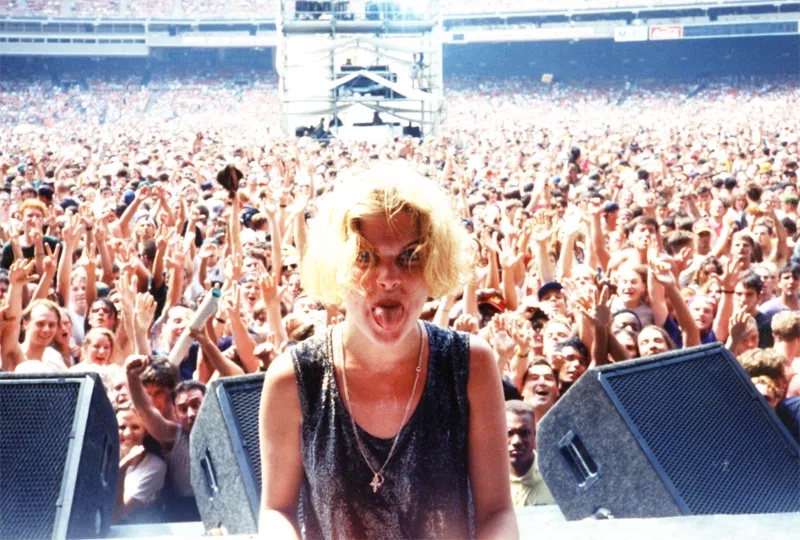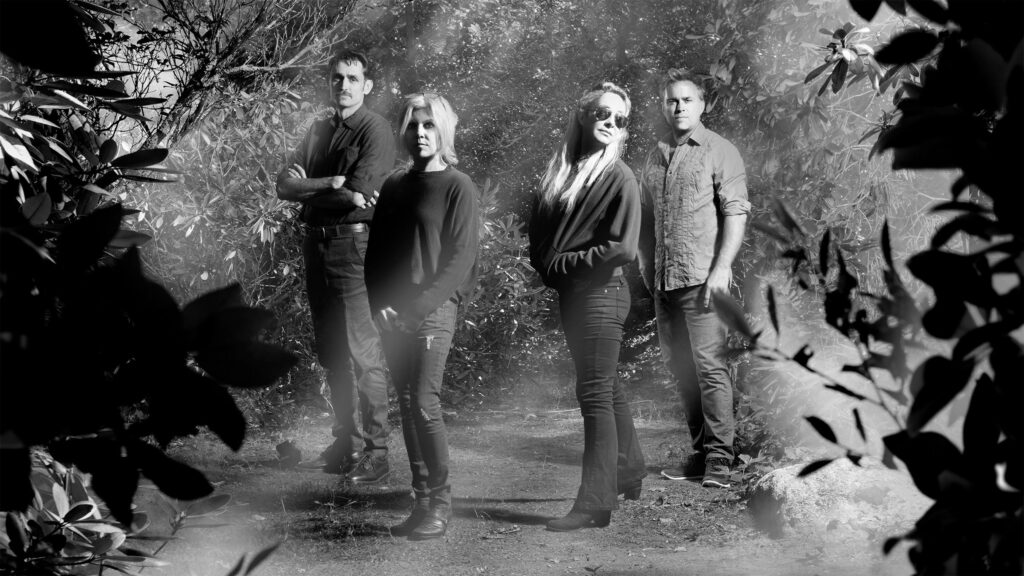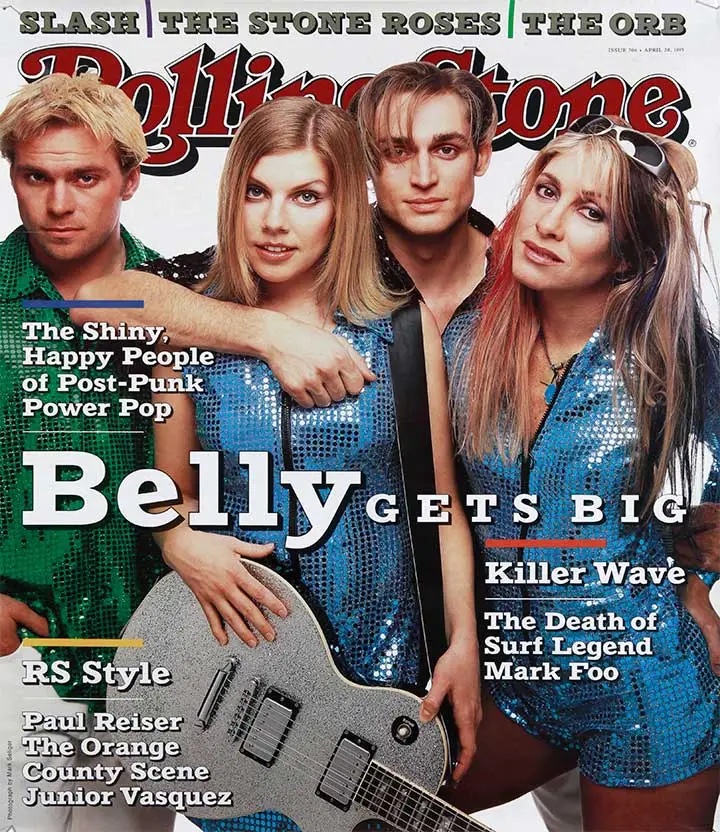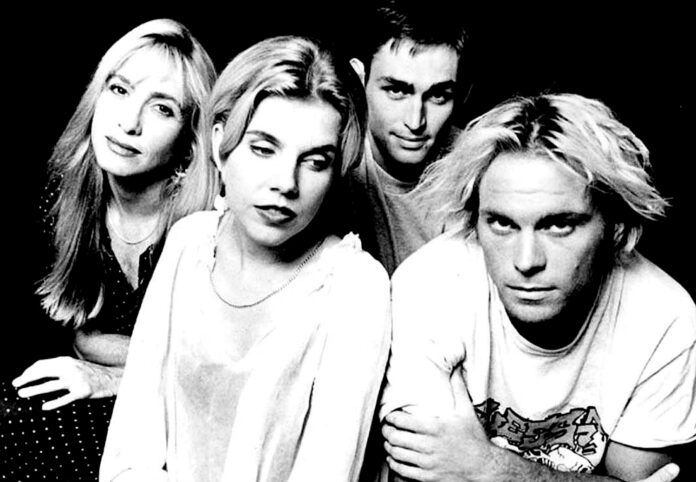Tanya Donelly takes pride in her creative achievements over the last three decades.
The singer-songwriter-guitarist helped launch three seminal alternative rock bands—Throwing Muses, The Breeders, and Belly—the last two within only two years of each other.
With Throwing Muses, she became the first American act signed by the legendary British label 4AD. Her 1990 Breeders debut, Pod, was one of Kurt Cobain’s favorite albums.
With Belly, the ethereal-voiced singer achieved two alternative Top 10 singles: “Gepetto” and the chart-topper “Feed the Tree.” The quartet also co-headlined a tour with Radiohead, counted The Cranberries as an opening act, and graced the cover of Rolling Stone magazine—before Donelly set off for a solo career.
Donelly was one of an army of guitar-toting feminist firebrands—L7, Babes in Toyland, Hole, Bikini Kill, and Sleater-Kinney—all gunning for increased visibility in the male-dominated rock arena. In so doing, they paved the way for future generations of women performers.
Her only remorse, she confesses publicly for the first time, is not doing even more to champion women.
“I don’t have a lot of regrets,” says Belly’s frontwoman. “It’s not how I live, but I regret not being more proactive.”
I spoke to Donelly in advance of Belly touring with her former band The Breeders (hitting The Warfield Mon/23) about her groundbreaking achievements, the sexism she experienced in the music industry from Jan Wenner and other top dogs, and how the tour is far from a last splash.
48 HILLS This outing is a celebration of two huge albums, both turning 30 this year: Belly’s Star and The Breeders’ Last Splash. How do you look back on those LPs three decades later?
TANYA DONELLY Last Splash is a beautiful, perfect album. A couple of the tracks were songs [The Breeders’] Kim Deal had played for me as potential for the next album so I could get used to them, including “Cannonball.” I played on the demos for a couple of them, and she played on some of mine, too.
We had a strange trajectory toward the end of The Breeders because, for instance, all of the songs that ended up being on Star, Belly’s first album, were slated for the second Breeders album.
But then Kim went on tour, so I did the Belly thing. When Star and Last Splash came out within months of each other, it was like we were playing side by side. There was just something so celebratory about the fact that Kim and I both got to do our thing and that it worked out so beautifully separately. It was wonderful for both of us.
48 HILLS There were so many great songs on Star. What do you think made “Feed the Tree” the stand-out track?
TANYA DONELLY I don’t know—because it’s a weird song. The three stories that weave together are not pop-song material. And honestly, that was not the plan. Nothing came from us, the labels, our manager, or anybody in our orbit. No one said, “This will be anything marginally successful.” Well, maybe marginally, because I was coming from a known band. But other than that, there was no expectation for it. It was slightly random that we even picked that one.
But it’s got a strong chorus. Also, the opening of it, the first 15 seconds of the song, is very strong.
I don’t want to sound vain, but it enters culture at some point when people want it and are ready for it. There’s a lot of mystery around that, which makes predicting success a fool’s game.

48 HILLS There were so many strong women-fronted rock bands in the ’90s, including Belly. How did it feel to be part of this feminist wave?
TANYA DONELLY It means everything to me, and at the time that it was happening, we were aware that there were a lot of very talented women who were picking up instruments and writing songs and singing.
At some early stage of Throwing Muses, Kristin Hersh and I felt we couldn’t address the “What’s it like to be a woman in rock?” question because we just felt like, “What do you mean? Everything we’d ever listened to involved women.”
But it was really in post that I started to see that what happened in the late ’80s and early ’90s was unprecedented in terms of female musicianship. Not just singers and songwriters—there were also many strong, undeniable female musicians. It felt different and exciting.
I didn’t fully appreciate it until younger women started coming to me to say, “You, Kristin, and Kim are the reason I started playing.” I have to stare at the ceiling to try not to cry because it moves me every time. That’s genuinely one of the most gratifying parts of this. It’s an overwhelming gift to have somebody say that to you.

48 HILLS Did you ever feel that you were treated differently because you were a woman?
TANYA DONELLY. The example I’ve used is sitting in a program director’s office at a radio station and hearing, “We have to hold the single because there are too many female voices on the radio right now.”
It was said to me so easily as if I’d understood this was a business decision, and I was floored. I would love to say that I caused a scene, but all I said was, “Too many females?” I didn’t know what to say.
My manager and I sat side by side, looking at each other, and I was like, “I don’t understand. The female voice is so strident that you can’t hear it three times in a row?” That was a big, broad-stroke moment. There were tiny little micro things that would happen constantly. Back then, it was a daily thing. You would think, “OK, we’re going into the club. We’re going to the radio station.” You girded your loins in preparation for the nonstop physical commentary in a way that I hope will be past tense.
Even if someone said something positive to you, that’s not why I’m here. I’m not here for these compliments. And a lot of women in my orbit say the same thing. But then also it’s a lot of stuff like, “You can play guitar?” as if it’s a novelty—like a giraffe playing drums.

48 HILLS As a woman who appeared on the cover of Rolling Stone, how did you feel when you heard Jann Wenner’s recent comments about women and Black people not being as articulate in music as white men?
TANYA DONELLY It’s been a known thing about him. It’s a long time coming on this reveal. But it does point to the fact that my peers and I came up in a culture of staying away from people like him.
When #MeToo and Black Lives Matter took off, my kids started questioning the passivity of some of my generation. I tried to explain that our fights were daily. “All right, let’s take this guy on now, and let’s take this on.” It was something that you did. They were personal battles. I never felt like I was going to raise an army for this. It never felt like an option. It was just this feral latchkey generation. I fight my battles one by one.
But it’s a source of shame for me sometimes, honestly, that I didn’t out some people when I should have—that I didn’t take it to like, “No, no. We can’t just all be talking about how this guy is creepy and can’t be alone in a room with him. We have to say something to someone.” But I wasn’t raised knowing I had that power.
48 HILLS As a fellow Gen Xer, I know how easy it is to be criticized by younger generations for what we didn’t do. But all these groundbreaking bands like Hole, Bikini Kill, L7, and Belly empowered women and changed minds.
TANYA DONELLY I need to say something very confessional that I’ve never said before. I wish I had had the wherewithal to join the ranks of Courtney Love and [Bikini Kill’s] Kathleen Hanna and Tobi Vail. When Bikini Kill had women-only upfront, [Belly bassist] Gail Greenwood and I looked at each other and said, “Oh, my God. That’s brilliant.” Because Belly had to stop shows in the middle of a song to have groping men kicked out. I would have liked to look at women upfront and envision what the world could look like. I don’t have a lot of regrets. It’s not how I live, but I regret not being more proactive.
48 HILLS It’s all part of the evolution. Change can’t happen overnight. Society wouldn’t be where it is today without women like you.
TANYA DONELLY That is also part of the dinner-table conversation. But you can’t see the continuum until emerging from the river. It’s an age thing where you’re swept along, and then suddenly, you’re like, “You know what? I’m going to climb the bank for a second.” Then you can see it.
48 HILLS What’s coming up for Belly after this tour?
TANYA DONELLY We have 12 songs written but not fully recorded that we’ve been picking away at for the last year. So we’re going to workshop a few of those live and then talk about how to record. That’s the next step. We have to figure out how to get it done.
The Breeders with Belly Mon/23, The Warfield, SF. $45-$79.50. Tickets and more info here.







